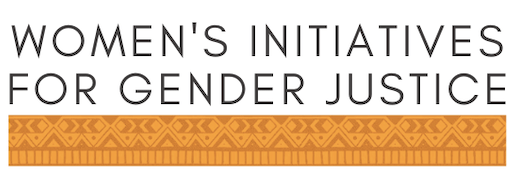Advocacy
The support of local decision-makers (provincial political leaders, cultural and traditional leaders, judicial and military leaders) to combat conflict and sexual and gender-based crimes (SGBCs) is critical. Raising awareness, knowledge, and support for gender justice issues through advocacy events and screenings of our gender justice documentary- Our Voices Matter – has proven to be effective. In the last 3.5 years, our partners have held 103 documentary screenings and advocacy events in three provinces involving over 9,500 judicial actors, provincial leaders, government ministries, police, military investigators, traditional leaders, community members and victims/survivors.
In recent years, WI partners advocacy screenings targeting strategic decision-makers combined with the use of the documentation data have contributed to:
- new laws expanding protection for additional forms of violence against women;
- motivating judges who participated in the screenings to visit police stations, demand to review the SGBV files and ask why these haven’t proceeded to Court;
- mobilising the Police in one province to hold monthly meetings with WI partners and other advocates to discuss ways to improve SGBV investigations and police responses to SGBV victims survivors;
- motivating faith leaders to seek training in gender justice issues and collaborating with WI partner in North Kivu as advocacy allies and in disseminating the sexual violence act more widely; and
- increasing SGBV reporting by female victims survivors following the screenings in remote communities.
Based on the annual programme assessments we conduct with our DRC partners, they are convinced that the advocacy screenings are a critical component of our multi-pronged approach in the DRC in reaching decision-makers, involving the community, legitimizing reporting SGBV incidents and changing community perceptions of victims of these crimes. Partners in three provinces report that the screenings are the door-opener for engaging traditional and political decision-makers, judicial and security sector actors in longer term actions, collaborative projects and motivating them to take action in their areas, courts or police stations.
Programme Priorities in North Kivu, South Kivu and Province Orientale in 2017-2019:
- Expansion of the Transit House Project and the launch of a third Transit House in Province Orientale in 2017.
- Capacity building opportunities for partners.
- Strategic documentation of conflict-related sexual and gender-based crimes with referrals to victims/survivors of medical services and legal representation, for those who wish to pursue formal accountability.
- Monitoring cases in mobile military courts of conflict-related sexual and gender-based violence allegedly committed by militia combatants or soldiers of the Congolese Army (FARDC).
- Launch and implementation of the new Strategic Accountability Project (South Kivu).
- Ongoing institutional development for WI focal points and partners.
- National advocacy with key ministries and government officials regarding ending impunity for SGBV, promoting gender equality, establishing greater security for the population in eastern DRC and building a platform for peace.
- Sub-regional and regional advocacy with a focus on the International Conference of the Great Lakes Region and the African Union.
- Host the Eastern DRC Gender Justice Dialogue in 2018 for 120 participants from at least four provinces affected by the ongoing conflict in eastern DRC.
- Strategic screenings and advocacy events utilizing the gender justice documentary for decision-makers, political leaders and judicial actors.
